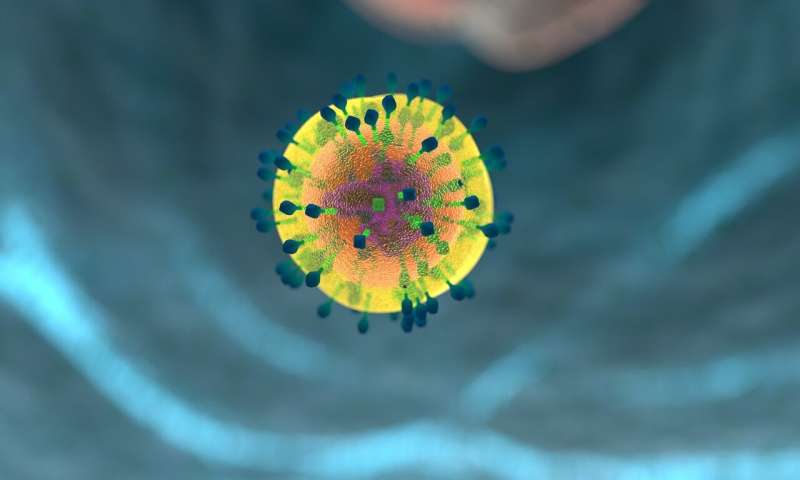
Many molecules in our bodies help our immune system keep us healthy without overreacting so much that our immune cells cause problems, such as autoimmune diseases. One molecule, called AIM2, is part of our innate immunity—a defense system established since birth—to fight pathogens and keep us healthy. But little was known about AIM2’s contribution to T cell adaptive immunity—defenses developed in response to particular pathogens and health problems we develop over the course of our lives.
Now, UNC School of Medicine scientists led by Jenny Ting, Ph.D., the William Kenan Distinguished Professor of Genetics, and Yisong Wan, Ph.D., professor of microbiology and immunology, discovered that AIM2 is important for the proper function of regulatory T cells, or Treg cells, and plays a key role in mitigating autoimmune disease. Treg cells are a seminal population of adaptive immune cells that prevents an overzealous immune response, such as those that occurs in autoimmune diseases.
Published in Nature, the research shows that AIM2 is actually expressed at a much higher level in Treg cells of the adaptive immune system than in innate immune cells.
“Our study unveils an unexpected and previously unappreciated role for AIM2 in Treg cells in adaptive immunity, which is independent of AIM2’s classic function in the innate immunity,” said Ting, co-senior author of the study, member of the UNC Lineberger Comprehensive Cancer Center, and director of the Center for Translational Immunology.
Wan, co-senior author and member of the UNC Lineberger Comprehensive Cancer Center, added, “Because Treg cells are well-known players in a broad range of diseases including autoimmunity, inflammation, and cancers, our findings will help us identify new molecular targets and develop new therapeutic strategies to test against debilitating and fatal diseases.”
Normal immune responses are carried out by both innate immunity and adaptive immunity to fight pathogens and maintain biological stability. But these responses need to be regulated so they do not escalate and cause a whole host of different health problems aside from what the pathogen originally caused. Distinct cell types and molecules play discrete roles in the down-regulation of innate immunity and adaptive immunity. This work shows that AIM2, in Treg cells, is one of them. Treg cells dampen over-exuberant immune responses, and so they are critical for the check-and-balance of the immunity system.
Impaired function of Treg cells often perturbs immune system stability and can trigger autoimmune and inflammatory diseases.
In lab experiments led by first author Wei-Chun Chou, Ph.D., research associate in the Ting Lab, the UNC scientists found that AIM2 was expressed at a much higher level in Treg cells than in innate immune cells, in both mice and humans.
“This suggests a big role for AIM2 in Treg cells,” Chou said. “We found that AIM2 is important to maintain the normal function of Treg cells, which could not effectively protect mice from developing autoimmune encephalomyelitis and inflammatory colitis without AIM2.”
Those two conditions are models of the human diseases multiple sclerosis and colitis.
Source: Read Full Article